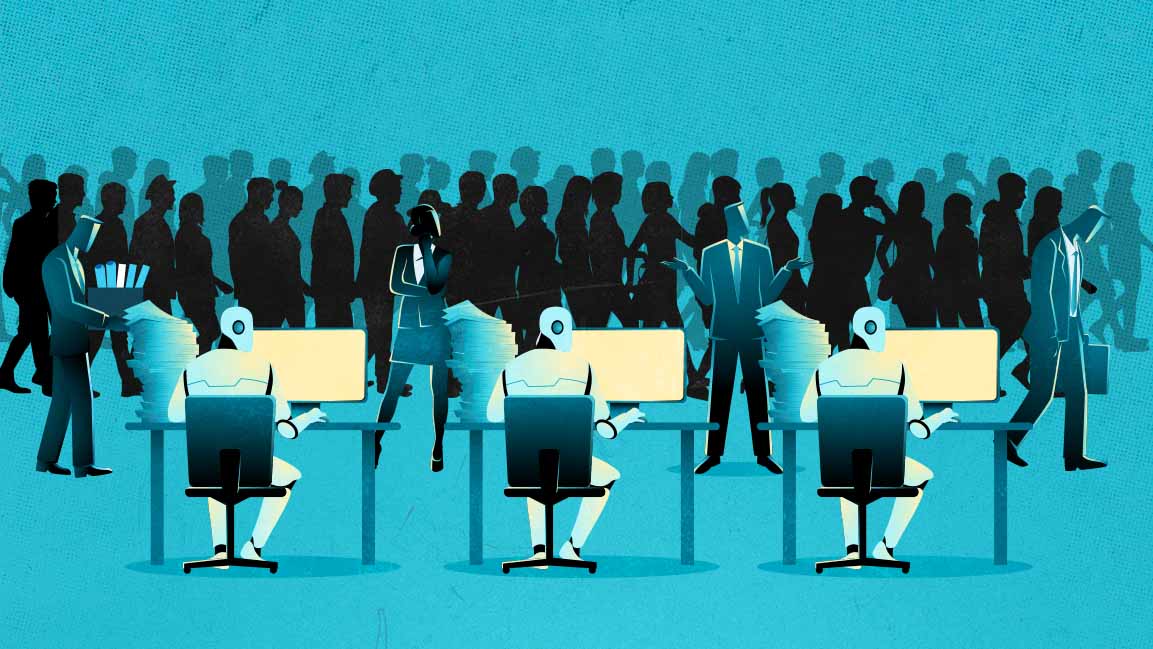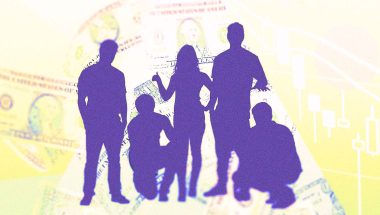- | 9:00 am
Is AI killing freelance jobs–how will the gig economy adapt?
There are pros and cons, but as AI advances, it lingers as a concern for freelancers' jobs.

There are little to no sectors untouched by the technological advancements of artificial intelligence and machine learning.
A concern that grows by the day is the status of jobs as AI is adopted and utilized—freelancers are among this demographic of affected jobs. Freelancers have been facing challenges as it is, such as lack of regulation, working overtime to meet unrealistic deadlines, and not being paid on time or enough.
Lama Kadri, a freelance designer, uses AI tools in her practice, such as ChatGPT to reword and paraphrase some of her emails and official documents and embedded AI tools in Adobe Photoshop, making it less difficult and time-consuming.
While she recognizes the potential such tools have, she does not fully condone them. “I try not to be a consumer of them as much as possible. It is not something I would like to feed into when big corporations utilize it in unethical ways.”
For instance, Adobe has received recent backlash over its revised terms of use, which users found to be invasive as it grants permission for the application to view and use any piece of work created on Adobe Creative Suite as property of Adobe. “This is ludicrous, because it is stealing the work of designers to create the very same machine that will, in the future, limit their job opportunities,” says Kadri.
However, Ian Saldanha, Partner at Procre8, a PR agency, says, that the use of freelancers doesn’t automatically imply the elimination of AI, or vice versa. “It’s almost certain that most gig workers use AI-powered tools. If this makes them more efficient, then sure, they might lose out on the more menial tasks, but at the same time, they will have more time, and with the support of AI tools – greater abilities, to take on more challenging projects.”
Stephen McBride, a freelance writer and editor, uses Bing Copilot for research, but not for writing. As an ex-technology professional and a current tech writer, he was aware that GenAI suffers from a black-box problem, leading to a lack of trust.
“While this might mean cold sweats for English professors trying to mark critiques of literary classics, for me, it was an excellent shortcut to a long-running performance bottleneck: information gathering,” he adds.
Sharon Fernandes, Founder of S Factor Agency, a marketing agency that hires and works with freelancers, says, “From an agency perspective, the freelance market is experiencing the influence of AI, but it is more about complementing rather than substituting freelance work. However, areas such as content creation/writing and design will largely be affected. AI tools can enhance productivity and efficiency rather than replacing freelancers entirely.”
FREELANCER VERSUS AI
At present, lower value freelance opportunities are the ones being taken up by AI. For example, companies that once required humans to draft content are now doing this with the aid of AI.
Higher-quality content, such as a technical whitepaper, are still lost on the capabilities of AI tools. At the same time, readers are also able to differentiate between content written by AI and humans, which companies who function under this vertical are forced to keep in mind.
The design industry witnesses a similar experience, it might be more convenient to use AI to design a one-off creative, but brands place their trust for large campaigns to humans.
“These humans may themselves use AI tools, so while AI might still be a part of the equation, it’s that honing and finessing that makes the difference between mediocre and top-quality work,” says Saldanha.
AI-driven platforms can assist in content creation by generating drafts or ideas, but human writers add nuanced understanding, and a creative narrative to press releases, blog posts, and social media content will be required. Moreover the marketing, PR, and design industries demand human interaction more than AI.
Kadri says she has noticed a similar trend, stating, “What I am noticing right now is that companies are celebrating AI and are looking for freelancers who are willing to embrace it for the future.”
She explains that within design, the tedious tasks, that would usually be given to juniors, are being replaced by AI. “If anything, they are training the juniors on how to run the AI tools. It is becoming less manual work and more managerial/decision-making work.”
The adverse effects of AI manifest differently, specifically within the work ethic department. The existence of AI has been fostering an expectation from employers on an unrealistic standard of delivery–since the help of AI makes creating things take less time, the expectation of achieving more is higher.
With this, Kadri also finds herself caught in a demotivated state of work. “The less time I spend thinking of a project creatively, the less rewarded I feel by it.”
In this context, the purpose of AI is to handle repetitive and simple tasks, leaving the complex and creative tasks, especially those that require strategy development, planning and market knowledge, still requiring human intervention.
Mcbride says he has seen some diminishing assignment volumes as his clients’ clients shrink their use of human-composed content.
Fernandes envisions the future of AI within the gig economy as a co-existence of AI and freelancers, whereby AI handles repetitive and straightforward tasks, while freelancers will focus on more complex, creative, and strategic work.
“Freelancers will need to adapt by upskilling and focusing on areas where human creativity, emotional intelligence, and critical thinking are paramount. However, there will be a shift in the types of opportunities available. Freelancers might need to consider roles that involve managing and overseeing AI processes, ensuring quality control, and integrating AI solutions with human creativity,” she adds.
CAUSE FOR CONCERN
With AI, the theory is that people get free or affordable, perfect work in the blink of an eye. Cost can be a key factor, but so is the convenience of the AI tools. A quick response from AI tools could also reduce the time and effort spent on back-and-forth communications and reviews with a freelancer.
The perks are attractive, but the privacy of sensitive client information, proprietary data and repetition of copyrighted ideas/content against AI tools must be considered. “We can easily set NDAs in place with freelancers, but AI systems are still very much a black box. This means anything that could be considered sensitive simply cannot be entered into a prompt textbox,” says Saldanha.
A freelancer who works exclusively for this category of client will most likely see no change. On the contrary, if they work exclusively for clients who can afford to skimp on quality and have no privacy constraints, they are expectedly open to the job market again.
Moreover, while AI may be cost-effective for certain tasks, the value and expertise brought by freelancers often justifies the investment. “We prefer using licensed freelancers for our projects that bring in required skill sets, nuanced understanding of the market, creativity and talent,” says Fernandes.
Saldanha echoes this statement, “As a PR agency, it all comes down to quality content, and I’m yet to figure out what prompts it will take to get a copy that’s half as engaging as what the freelance content writers we work with can produce.”
Despite the cause for concern, Kadri does not believe AI can do freelance work as effectively. “I can tell AI is being used as an assistant rather than a full-time employee. I don’t believe that, at this stage, companies are ready to adopt AI entirely and replace design departments with it. However, I can see it becoming a bigger issue in the foreseeable future when the machine has learned how to design like a human.”







































